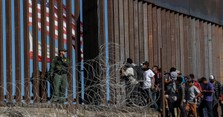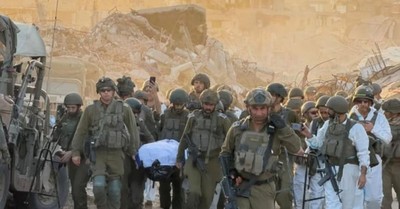
Trending Articles
Recent News
Sheriff Believes Savannah Guthrie’s Mother Is Still Alive as Ransom Note Is Investigated New ‘He Gets Us’ Super Bowl Ad Targets American Materialism, Points Viewers to Jesus Operation Brave Heart: Bringing Home the Last Hostage from Gaza Impact of America's Negative Net Migration on Ministries This Civilizational Moment Australian Teen Rescues Family Lost at Sea Today’s Athletes Are Bolder than Ever about their Faith in Jesus, Says Benjamin Watson TPUSA Reveals Alternative Halftime Show Lineup, Led by Kid Rock and Country Stars A $2 Million Verdict for Victim of “Gender Affirming Care” Finish MP Faces Trial Over Quoting Bible Verse Today' Show Host Savannah Guthrie's Mother Reported Missing, Police Declare Home a Crime Scene How Christians in Iran Are Responding to Trump's Armada to Iran
Trending Articles
Recent News
Sheriff Believes Savannah Guthrie’s Mother Is Still Alive as Ransom Note Is Investigated New ‘He Gets Us’ Super Bowl Ad Targets American Materialism, Points Viewers to Jesus Operation Brave Heart: Bringing Home the Last Hostage from Gaza Impact of America's Negative Net Migration on Ministries This Civilizational Moment Australian Teen Rescues Family Lost at Sea Today’s Athletes Are Bolder than Ever about their Faith in Jesus, Says Benjamin Watson TPUSA Reveals Alternative Halftime Show Lineup, Led by Kid Rock and Country Stars
Positive Stories
Celebrity
Video
Opinion
Church
Entertainment
Sports

Rams’ Matthew Stafford Goes Viral for 2:30 a.m. Kiss with Sleeping Daughters after Loss
Michael FoustMovies
Politics
Israel
Christian News Headlines - Breaking and Trending Religion News
Crosswalk Headlines - Christian news brought to you by a group of Christian writers and editors who are dedicated to creating a well-rounded look at what’s happening across the globe from a Christian worldview. Our vision is to inform and inspire productive discussion about the current events and online trends that shape our lives, our churches and our world.Crosswalk Headlines includes blog posts about current events and Christian media, breaking news, feature articles, and guest commentaries, many written by respected Christian thinkers.


































































